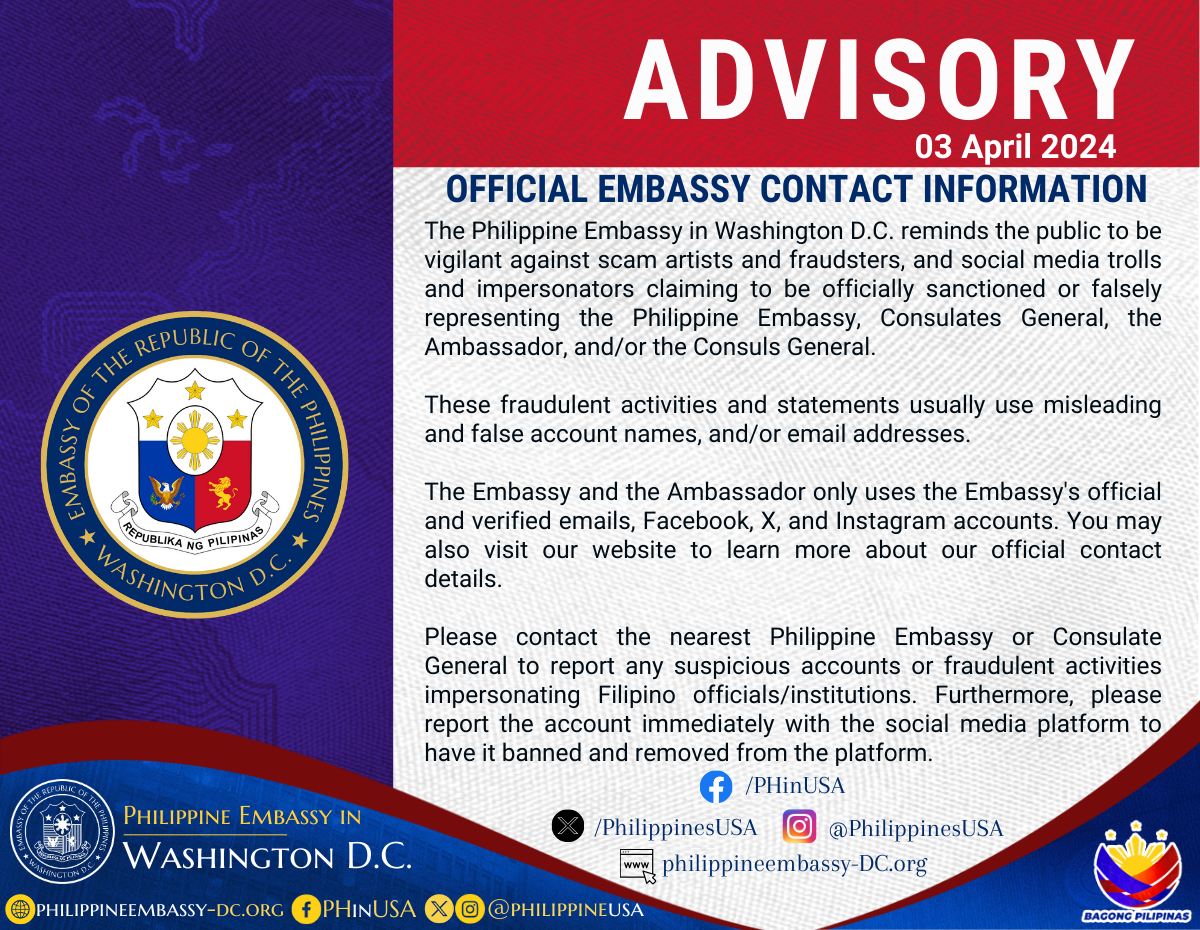Philippine embassy in US issues scam alert
WASHINGTON – The Philippine Embassy in Washington D.C. has issued an alert warning the public against scammers who claim to represent the embassy, consulates, Philippine Ambassador Jose Manuel Romualdez and consulate officials.
“The Philippine Embassy reminds the public to be vigilant against scam artists and fraudsters, and social media trolls and impersonators claiming to be officially sanctioned or falsely representing the Philippine Embassy, Consulates General, the Ambassador and/or the Consuls General,” states the advisory dated April 3.
“These fraudulent activities and statements usually use misleading and false account names, and/or email addresses.”

FILE PHOTO
The advisory reminds the public that the embassy and the Philippine ambassador only uses the following official and verified emails, Facebook, X and Instagram accounts:
X: /PhilippinesUSA
IG: @PhilippinesUSA
You may visit the Philippine Embassy website to find the embassy’s official emails, social media accounts and contact information.
The public is urged to contact the Philippine Embassy or the nearest Consulate General to report any suspicious accounts or fraudulent activities impersonating Filipino officials or institutions.
The embassy is also asking the public to report fraudulent social media accounts to the platforms to have them removed immediately.
Imposter scams
Imposter scams remained the top fraud category last year, with reported losses of $2.7 billion, according to authorities.
These scams involved people pretending to be a bank’s fraud department, a relative in distress, a well-known business or a technical support expert.
Scammers also pretended to work for law enforcement and government agencies, such as the Internal Revenue Service (IRS), Medicare or Social Security Administration (SSA).
According to authorities, imposter scammers:
- Pretend to be from an agency or organization you know.
- Say there’s a problem or promise a prize.
- Pressure you to act immediately.
- Tell you to pay in a specific way.
In 2023, email was the most reported contact method of scammers. In 2022, text was number one, but before that phone calls were always number one.
You may also like: What were last year’s biggest scams?


